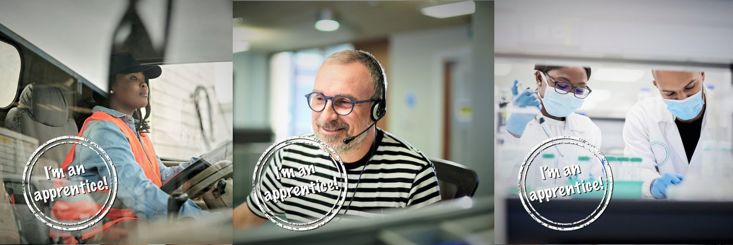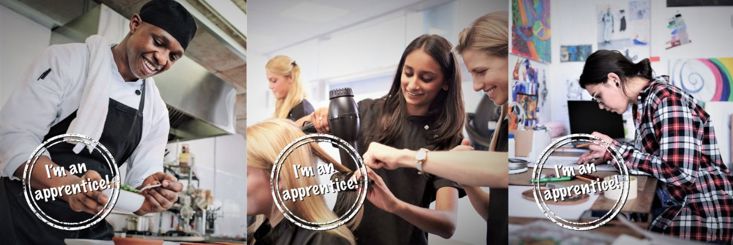National Apprenticeship Week (NAW) recognises and celebrates the accomplishments of apprentices across England.
An apprenticeship is a real job where you learn, gain experience and get paid. You’re an employee with a contract of employment and holiday leave. By the end of an apprenticeship, you'll have the right skills and knowledge needed for your chosen career. It can take between one and six years to complete an apprenticeship depending on which one you choose, what level it is and your previous experience. It’s funded from contributions made by the government and your employer.
We work with employers to develop, approve, review and revise apprenticeships as well as other technical qualifications.
We are transforming and improving the skills system by putting employers at the heart and making it easier to navigate for all.
We follow expert guidance from thousands of large and small employers to deliver world-class apprenticeships, T Levels, and Higher Technical Qualifications (HTQ).
The 16th annual week-long celebration of apprenticeships, taking place across England, will showcase the impact apprenticeships can have on communities, local businesses, and regional economies. You can find out more about how you can benefit from apprenticeships with the information below.

At IfATE our work aims to make sure apprenticeships and technical education are of the highest quality. This helps to give every employer and individual the skills they need to succeed.
All apprenticeships, T Levels and Higher Technical Qualifications are based on occupations recognised by employers. Working together we've built over 600 occupational standards across 15 occupational routes.
To register interest in joining a group or board contact enquiries.ifa@education.gov.uk
Trailblazer groups are responsible for developing and updating occupational standards which form a key component of an apprenticeship.
Route panels are responsible for ensuring that apprenticeship standards, T Level qualifications and Higher Technical Qualifications are high quality and meet the needs of employers, apprentices, students and the economy at large.
The green advisory panel helps focus efforts to make sure the right skills are in place for the future workforce to deliver the green technology shift the UK needs.
The energy and utilities advisory panel (EUAP) will help ensure that the current and future skills needs of these industries are captured and reflected in technical qualifications and apprenticeships.
We are also looking for peer reviewers to undertake independent reviews of new and updated qualifications and apprenticeships. Reviewers must not be members of trailblazer groups and must not review any materials they have been involved in developing. We are particularly looking for FE lecturers, academics and employers to provide insights about Level 2 & 3 technical qualifications (TQs) in Engineering & Manufacturing, Construction & the Built Environment, Digital, Health & Science and Education & Childcare.
Reviewers who have a contract with IfATE are eligible to receive a fee. The workload is highly flexible, and a typical review may take 2-4 hours. For information, please contact IFA.PeerReview@education.gov.uk
You can get involved in consultations and surveys.

Apprenticeships are for those aged 16 or over and combine working with studying to gain skills and knowledge in a job role.
All employers must use the apprenticeship service to access apprenticeship training to meet their business needs, filling skills gaps and boosting productivity.
Apprenticeships can benefit your business by:
Apprentices can be new or current employees and:
Find out more about offering an apprenticeship
How apprenticeship funding works
The apprentice guide to quality apprenticeships - (raising the standard)

We can signpost you to the right place if you are thinking about becoming an apprentice.
To become an apprentice:
As an apprentice you’ll:
Browse which apprenticeships are available
The apprentice guide to quality apprenticeships - (raising the standard)